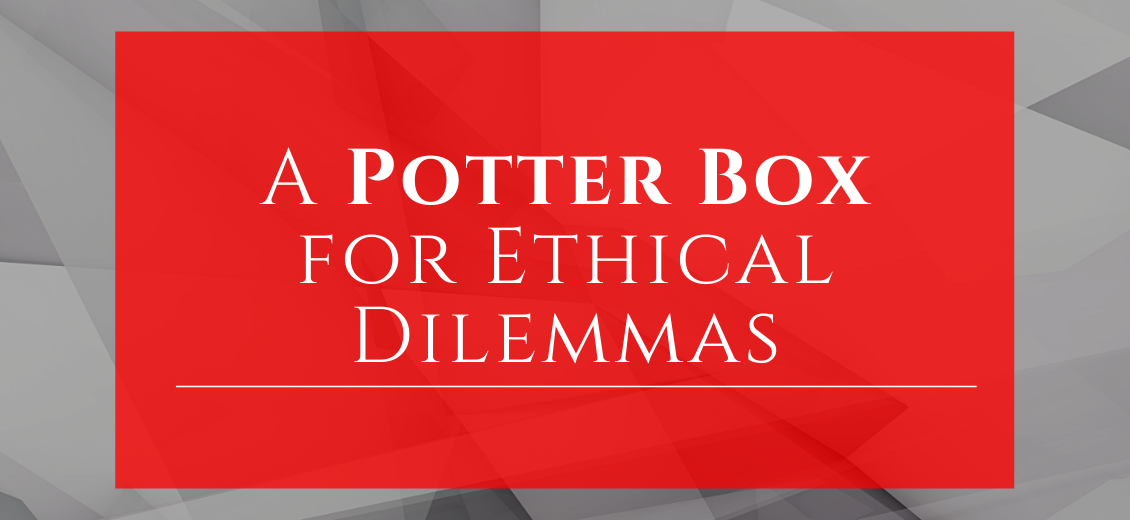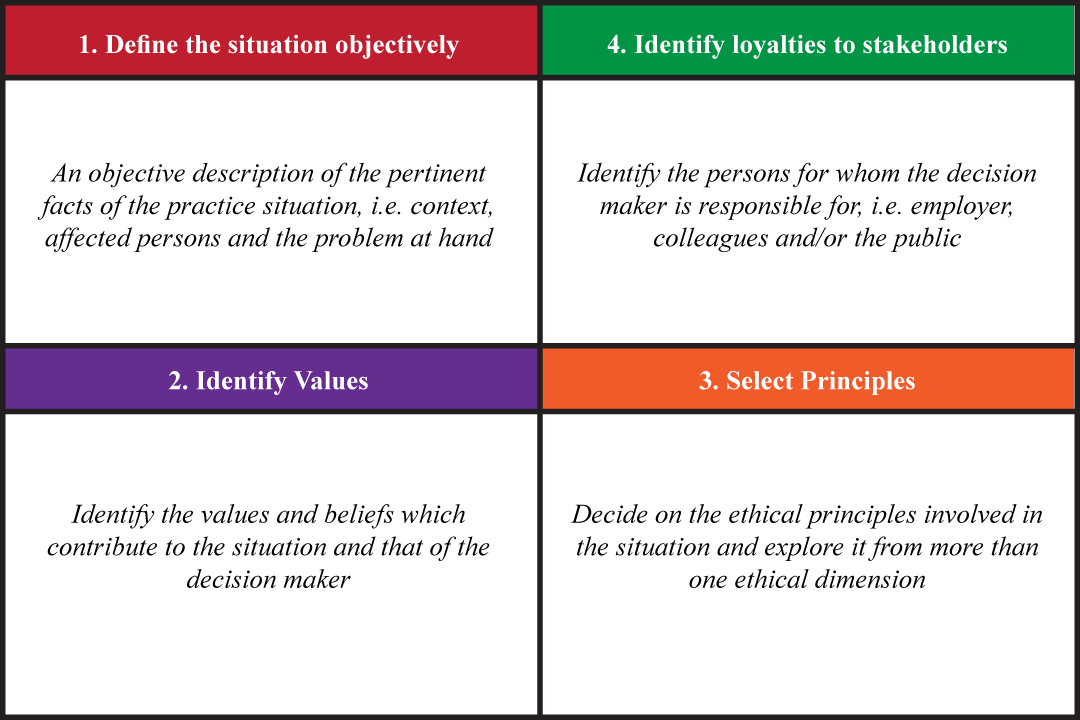A Potter Box for Ethical Dilemmas
Blogs Home
- 12 Jan 2022

As former British PM Anthony Eden said, “Corruption has never been compulsory.” Yet, a lot of public servants resort to corruption. Many believe all bureaucrats demand bribes (which is not the case). But as you plan on entering the public services, you must be wondering how you will be able to resist yourself from working unethically and not succumbing to pressure. Ralph Potter Jr., a professor at Harvard University, introduced the Potter Box of Moral Reasoning which can help anyone in taking ethical and justified decisions. Read on to know more about the Potter Box and how it can prove to be useful in decision making.
There are four aspects to be taken into account to ensure one takes ethical decisions, as put forth by Prof. Potter. These steps can be repeated to ensure that there eventually is no conflict between any two aspects.
“The Potter Box advocates the division of ethical reflection into four main steps: first two of these steps seek to generate the relevant information, and the latter two are normative or prescriptive.” The four aspects to be taken into account are as follows:
- Facts: Take into consideration all the facts at hand. It is important that one does not hide any realities or rope in personal judgments. This step helps one understand the problem at hand precisely.
- Values: When it comes to values, one needs to evaluate which values are more important in the given situation. This helps the examiner in determining conflicting viewpoints. Once the values have been determined, it gets easier for one to chalk out potential plans to solve the issue.
- Principles: We should all be aware of these 5 principles put forth by famous philosophers - Aristotle’s Golden Mean, Immanuel Kant’s Categorical Imperative, JS Mill’s Principle of Utility, John Rawl’s Veil of Ignorance, and the Judeo-Christian point of view of the person as an end. By deciding upon which principles can be applied in a given situation, the examiner is well-prepared to understand the problem as well as solve it.
- Loyalties: Finally, the inclinations of the examiner also become important. One must sort out the conflicting loyalties, if applicable. Not having clarity with respect to one’s loyalties can prove to be detrimental further on. The 5 loyalties that one can have are towards their own conscience, towards their followers, towards an organization, towards colleagues, or towards society. For example, a news reporter might find it more important to ensure that the privacy of individuals is protected, over the right to information of the viewers.
A few questions that can help understand the 4 steps:
- What are the facts that you know about this situation?
- Which values, principles, and loyalties are in contradiction with each other?
- To whom should you respond to and justify the decisions you make? Who else would be impacted?
- What is the ethical doctrine that best describes your position?
- Would any innocent third parties be benefitted or hurt?
- What personal, professional, and social effects could be observed if your decision is implemented?
- Is the box helping you solve the issue, better than your own intuitive thinking?
- What are the issues that you might have to face if you rely entirely on the Potter Box?
How is the Potter Box helpful?
An article published by the Huffington Post talks about more than 100 studies spanning across 30,000 employees, in which it was found that employees work better when their leader is ethical. These employees are more likely to be ethical, tend to be happier with their jobs, are more committed, and are more helpful. Though the article does not directly refer to the Potter Box as such, we now know for a fact that the Potter Box can surely help people make the right decisions. It is also important to remember that in a non-professional setting, what might be ethical to one, might not be ethical to another. There is no objective answer in many cases. For example, an official might be concerned about helping a needy person, while on the other hand, another official might be against it since the needy person might not have the required documents. In this case, both the officials could be right (as well as wrong).
Limitations of the Potter Box
According to Shannon Bowen (a teacher and researcher in ethics), there are a few limitations to the Potter Box. The first one is that a leader, when they set standards, are prone to avoid people with conflicting ideas. This could also make others agree with what the leader thinks, in order to avoid any problems with the leader. It also ignores the fact that there is a possibility of general good standards, and not just obligations.
The Potter Box has been used by many people for decades now, to make decisions based on rational ethics. Though it is open to criticism, it surely helps people make decisions systematically. The Potter Box is not to be seen as a benchmark to be used in order to get the right solutions. Instead, it should be considered as a tool that helps us examine what the true underlying aspects to an ethical dilemma are.

Uma Sathwika Manda
Blogs Home




